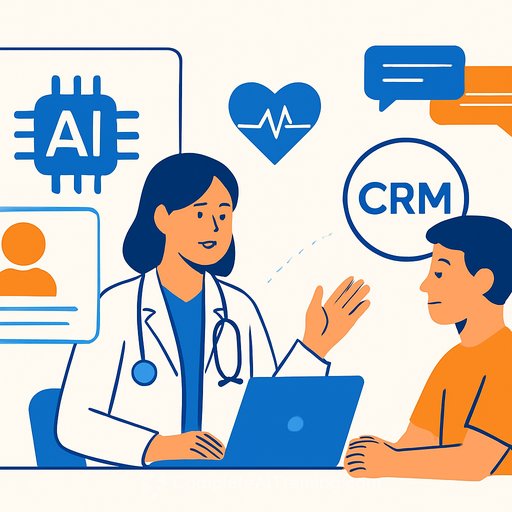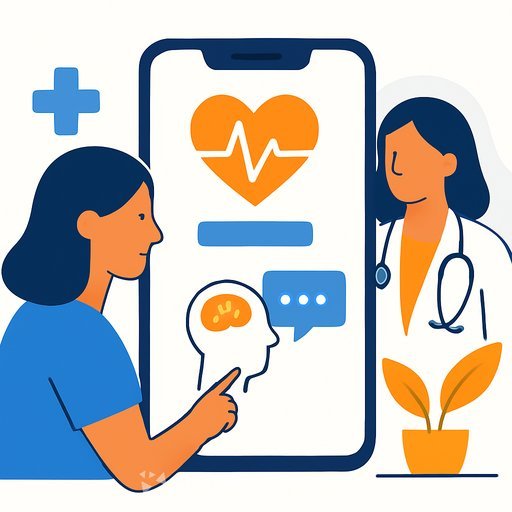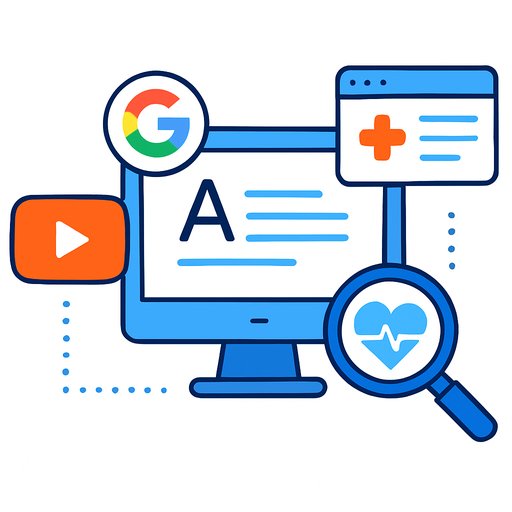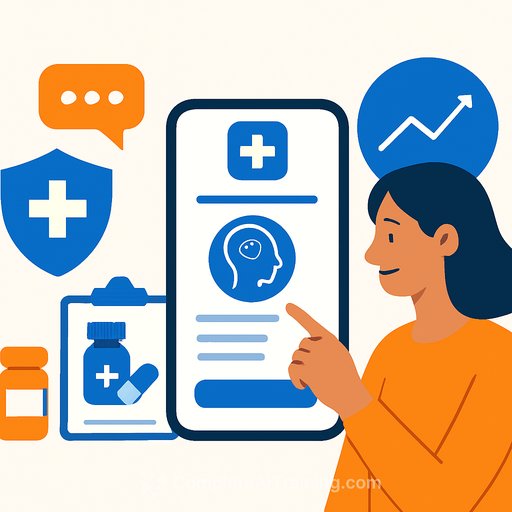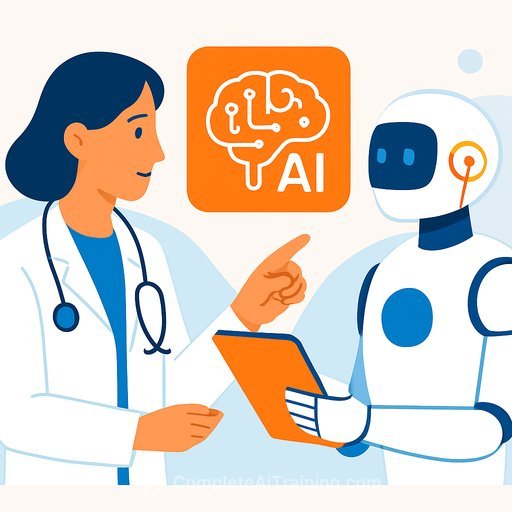AI + CRM in Healthcare: From Faster Claims to Human Connection
Speed is table stakes. What matters now is whether members, providers and patients feel seen, supported and understood. AI and CRM, working together, are making that possible - transforming operations into relationships.
Efficiency wins alone don't move the needle. One program automated over 60% of claims and cut cycle times by nearly 40%, yet member satisfaction barely budged. The lesson: speeding up a fragmented process still leaves it fragmented.
The Legacy of Disconnection
Healthcare runs on systems that weren't built to speak the same language. Claims platforms, EHRs and CRMs each optimized for their own job, but not for the shared context a person expects.
In journey maps of end-to-end experiences, more than 20 handoffs often sit between a submitted claim and a member update. Every handoff invites delay, data loss and mixed messages. CRMs log interactions without clinical context; claims engines adjudicate without anticipating care needs.
Consumer expectations are rising fast. Over 60% of people expect health plans to deliver personalization on par with online retail. Transaction systems alone can't deliver that. AI changes the equation.
Where AI and CRM Converge
AI has shifted from buzzword to bridge. Combined with a unified CRM layer, it connects data, predicts needs and helps teams act with empathy at scale.
- Predictive member engagement: Models blending claims, EHR and demographic data flag likely care gaps and trigger CRM outreach. Analyses show AI-enabled engagement can improve retention and reduce administrative waste by up to 30%.
- AI-driven claims triage: Claims are prioritized by complexity and denial risk, with proactive prompts for missing documentation. Less rework, fewer surprises.
- Next-best-action in member services: CRM consoles surface contextual recommendations - from care coordination opportunities to alerts for potential medication nonadherence.
- Integrated provider experience: Linking CRM and provider portals gives care teams one view of coverage, claims and care plans, cutting back-and-forth and freeing time for clinical work.
In a Fortune 100 healthcare organization, connecting CRM, AI and claims systems reduced average case resolution time by 25% and increased member satisfaction by 10+ points within six months. The bigger shift was mindset: teams started thinking like partners in care, not just processors.
The Real Barriers to Scaling AI Aren't Technical
- Data silos: AI can't deliver if claims, clinical and customer data live in separate fiefdoms. A shared data model with clear ownership and governance correlates with higher ROI on AI programs.
- Compliance complexity: Innovation and accountability must move together. AI systems should be explainable, auditable and aligned with frameworks like HIPAA and CMS rules - with compliance involved from day one, not after a pilot.
- Change fatigue: Even great models fail without frontline trust. Co-designing dashboards and workflows with service reps has driven double-digit adoption gains in real programs. Engagement is the multiplier.
From Efficiency to Empathy
Early CRM success metrics fixated on speed and handle time. AI + CRM raises the bar: predict needs, prevent friction and personalize support. AI anticipates; CRM activates. Together, they form a feedback loop that compounds learning and improves outcomes over time.
One payer used AI to analyze call transcripts for emotional tone and friction points. Training reps to spot confusion and frustration earlier led to measurable lifts in empathy scores. Tools like Google's What-If Tool help teams test models for fairness and reliability before deployment, so insights are as ethical as they are effective.
When claims, care management and contact centers share context, departments stop working in isolation. Claims analysts see clinical pathways. Care managers see benefit patterns. Service teams see their impact on real outcomes. That is how organizations start to operate as ecosystems.
Studies show double-digit improvements (13-37% across operations) when AI-driven workflows are embedded end to end, with estimated cost savings up to $970 million per $10 billion in payer revenue.
What to Do Next: Practical Moves for Healthcare Leaders
- Unify the data layer: Create a shared member record across claims, EHR and CRM. Establish cross-functional data ownership and governance with audit trails.
- Put AI in the workflow: Deliver insights where work happens - inside CRM consoles, provider portals and care management tools - not in separate dashboards.
- Start with high-signal use cases: Claims triage, care gap outreach, next-best-action and denial prevention produce fast wins and useful feedback loops.
- Bake in compliance: Document model lineage, decisions and data use. Define review thresholds and escalation paths before pilots begin.
- Co-design with frontline teams: Run quick iterations on UI, alerts and recommendations. Measure adoption and sentiment alongside operational KPIs.
- Measure what matters: Track empathy scores, first-contact resolution, avoidable denials, care gap closure rates and member effort - not just speed.
A New Definition of Value
Value isn't just lower cycle times. It's fewer handoffs, clearer answers and proactive support that feels human. When data flows between claims and care, when service reps have real-time context and when compliance is part of the design, healthcare starts to feel connected again.
The milestone to watch isn't a go-live date. It's when a team starts saying "member journey" instead of "case," and uses data to prevent issues rather than react to them. Every claim tells a story. AI's promise is helping us hear it - and act on it - with care.
If your teams need structured upskilling to put AI and CRM into practice, explore role-based programs at Complete AI Training.
Your membership also unlocks:

